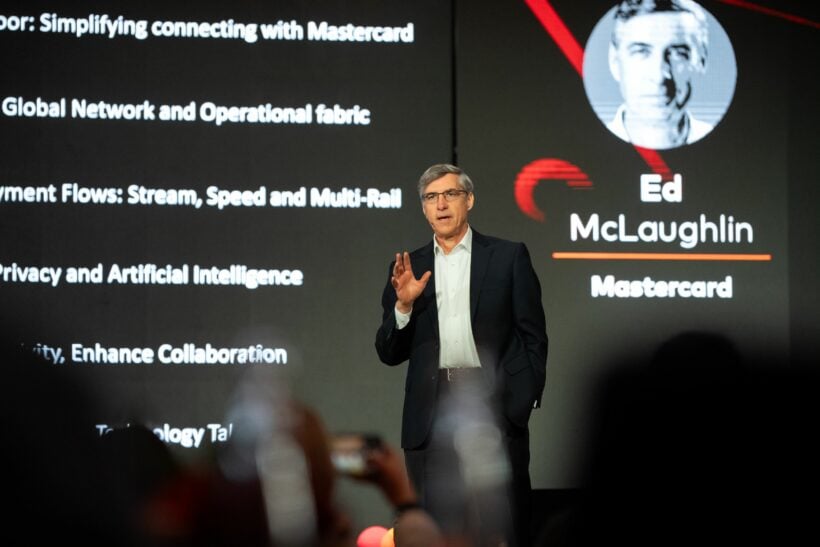
Ed McLaughlin, President and Chief Technology Officer at Mastercard, shares insights on the company’s commitment to leveraging technology to foster financial inclusion, enhance cybersecurity, and secure transactions across Africa.
With the rapid transformation of the digital landscape, Mastercard is adapting and innovating to meet the changing needs of consumers. McLaughlin emphasizes that the company’s primary focus is on connecting people in new and meaningful ways.
“We are in a time of tremendous change, particularly in technology. But what’s most important is how we can bring that change to market and to our consumers,” McLaughlin notes. Mastercard is driving this change through contextual commerce, blending the physical and digital worlds to create new capabilities and opportunities for financial inclusion.
One of the key elements in the payments industry is trust, particularly in regions with evolving financial landscapes like Africa. McLaughlin discusses the importance of cybersecurity in building and maintaining this trust. “Trust is essential for doing business, especially in changing markets within the electronic realm. Mastercard has invested over US$7 billion in the last five years to build security systems that ensure reliability for end consumers,” he explains. This investment has led to significant advancements in endpoint defense, encryption, and AI-driven fraud prevention, stopping over $20 billion in fraud last year alone.
McLaughlin highlights that consumers using Mastercard have zero liability for fraud, reinforcing the company’s commitment to secure and trustworthy transactions. This foundation of trust enables Mastercard to introduce innovative technologies that enhance user experiences and expand financial inclusion.
Africa is at the forefront of some of the most exciting technological advancements, and Mastercard is actively implementing these innovations to benefit the continent. McLaughlin expresses his enthusiasm for the region’s mobile money offerings and the potential of AI to deliver personalized experiences while protecting against fraud. “Some of the most exciting technologies we’ve seen are in Africa because a lot of that development is happening here first,” he says. Mastercard’s initiatives in Southern Africa aim to increase the reliability and speed of financial processes, leveraging powerful AI techniques to unlock new opportunities.
McLaughlin underscores the importance of building a secure digital ecosystem that supports financial inclusion, emphasizing that as more people and businesses are integrated into the digital economy, it is crucial to protect them. “We can’t put vulnerable populations at risk – it is important not to put the full burden of security on their shoulders,” he states. Ensuring that the most vulnerable are shielded from the consequences of weak security and fraud prevention tools is essential to maintaining trust and advancing financial inclusion efforts.
Mastercard’s focus is on building a digital economy that is secure, inclusive, and innovative. It is what guides the company’s mission to integrate 1 billion people – and 50 million micro and small businesses – into the digital economy by 2025. “We’re building a community of stakeholders who can act together, make a difference, and drive sustainable, lasting impact,” McLaughlin states.
Mastercard’s collaborative approach is evident in partnerships like with MTN, which connects local entrepreneurs with data analytics and payments tools, and drives financial and digital literacy across Africa. Additionally, Mastercard’s recent infrastructure investments in South Africa aim to modernize the payments industry and enable local processing, further supporting the region’s digital transformation.
As the fintech landscape in Africa continues to evolve, Mastercard remains committed to co-creating solutions that integrate seamlessly into digital ecosystems. The company’s Start Path program supports fintech startups like Nigerian company Duplo, which simplifies business-to-business payments. By leveraging AI, machine learning, and biometrics, Mastercard ensures that commerce thrives and trust is built within the digital economy.
This year, Mastercard marks 50 years of operations in Africa. Through these five decades, the company has connected millions of people and businesses to the digital economy, and introduced numerous solutions to help drive commerce and secure transactions.
As Mastercard celebrates its milestones in Africa and looks toward the future, the company is more committed than ever to its mission of creating a more inclusive digital economy that benefits all Africans. “I believe that Africa will continue to grow and prosper, with a much-expanded, more inclusive digital economy that will have risen to meet its potential. Now is the time to drive digital infrastructure and enable the enablers that can scale financial access and foster economic growth,” McLaughlin concludes.

